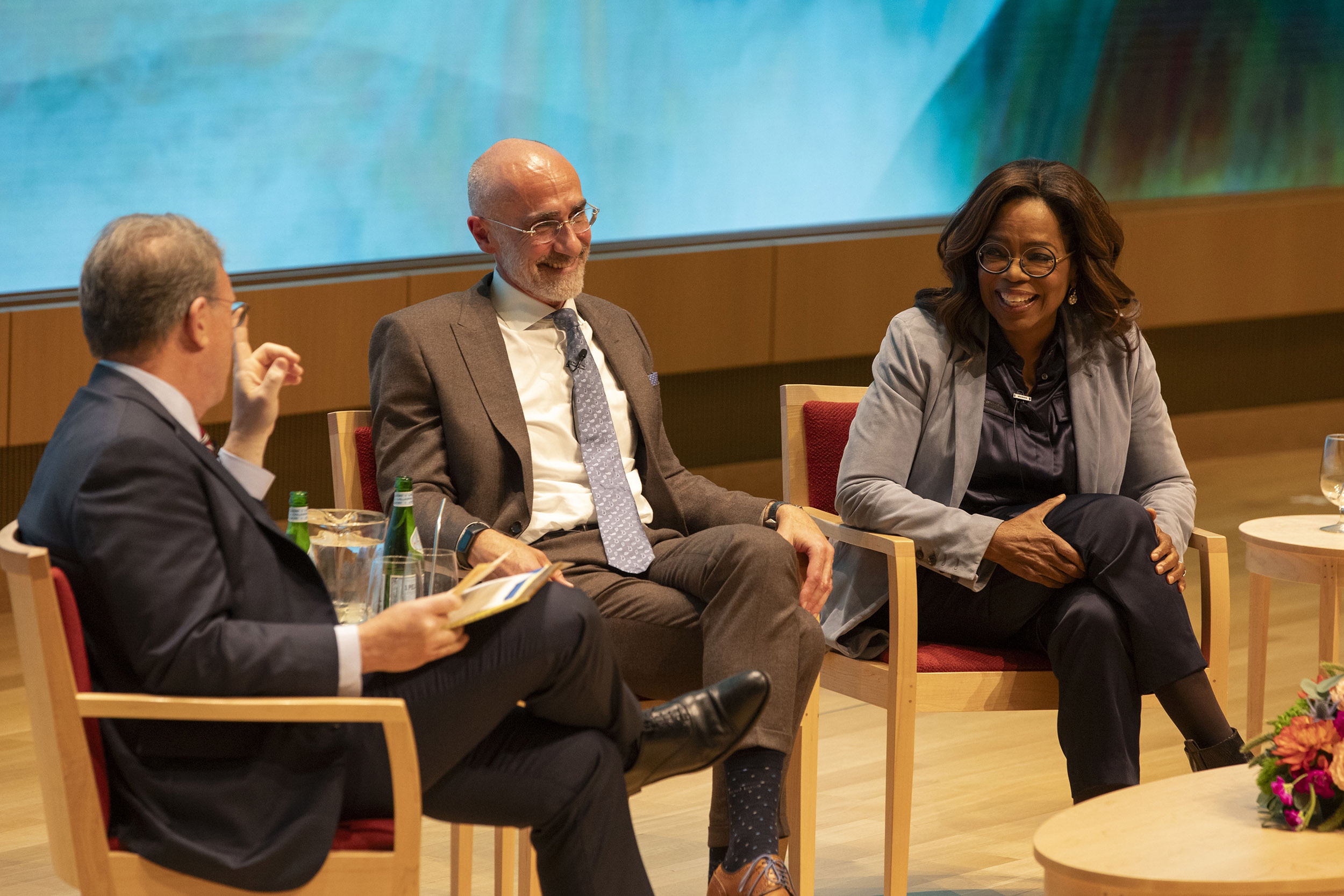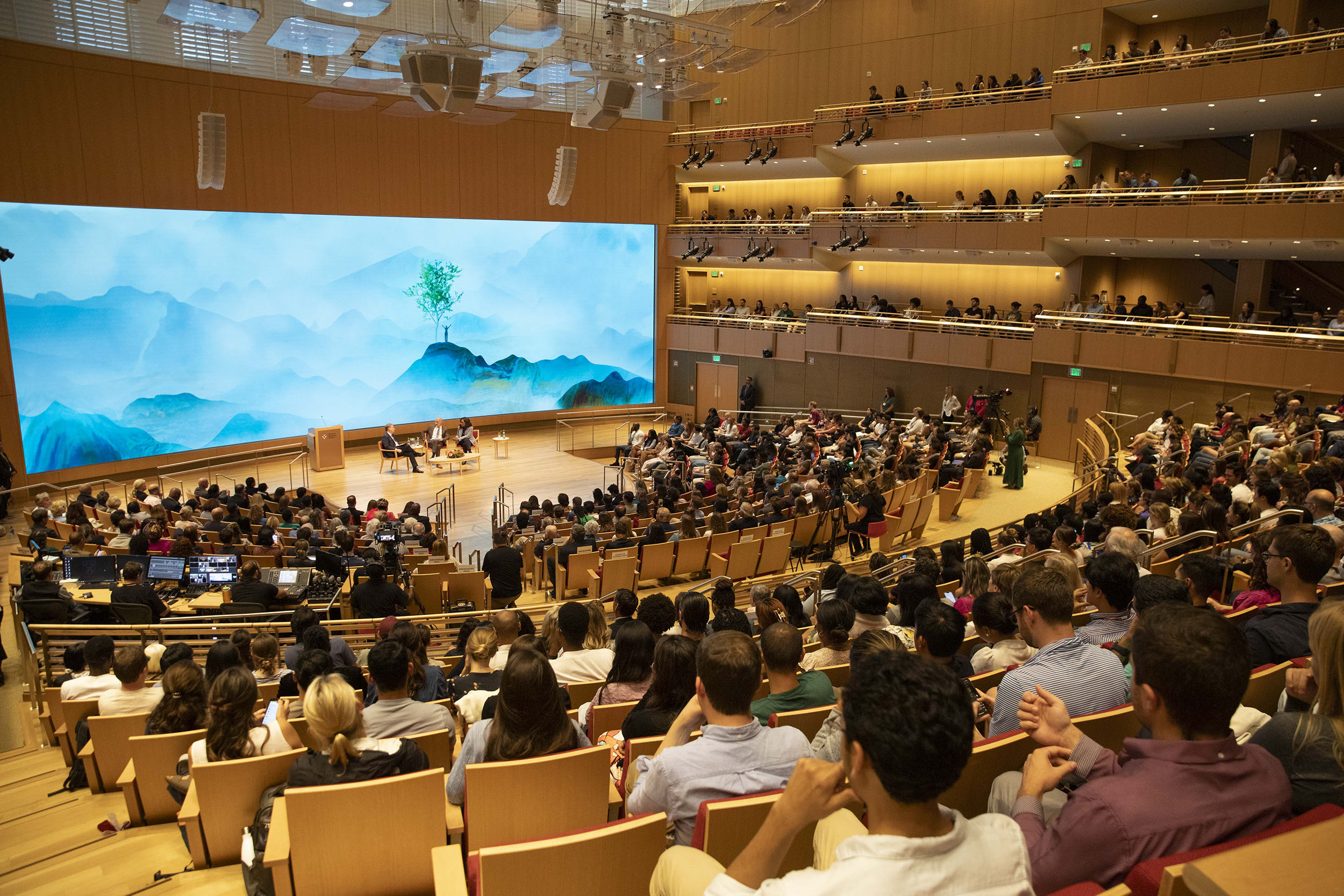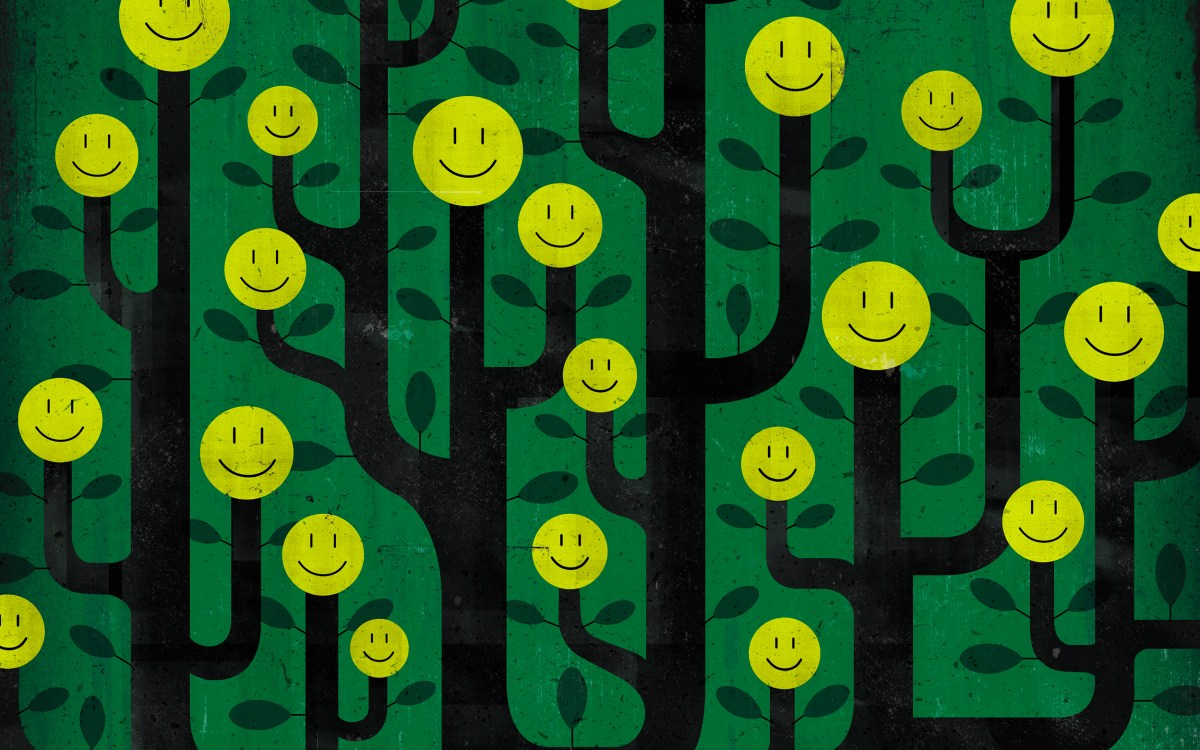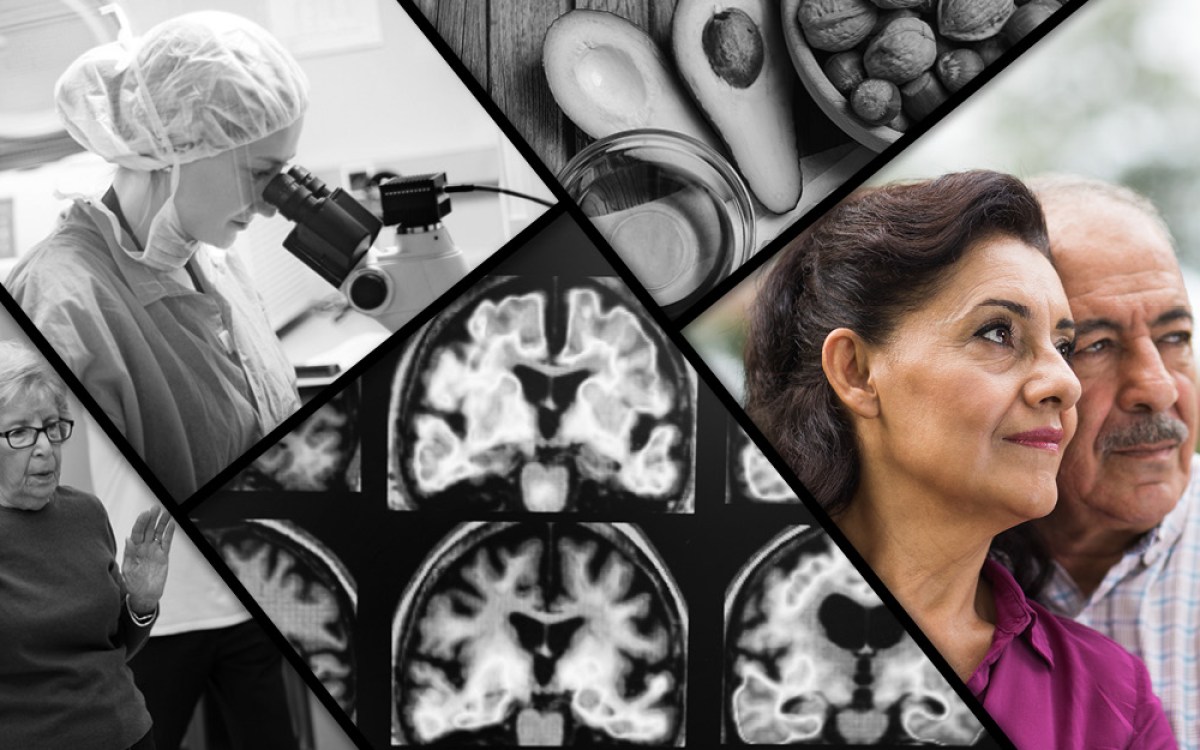
Harvard Professor Arthur Brooks and Oprah Winfrey discuss their new book, “Build the Life You Want: The Art and Science of Getting Happier,” in a conversation at the Business School moderated by Jeffrey Goldberg (left), editor-in-chief of The Atlantic magazine.
Photos by Niles Singer/Harvard Staff Photographer
Oprah and Arthur ask: Want to get happier?
Problem, they say, has to do with what we think happiness is, how to achieve it. (Hint: It’s not about racking up achievements or stuff.)
Many Americans say they are unhappier now than they were a decade ago, before the explosion of social media, the physical and social isolation brought about by COVID, and the political polarization that’s bled into our personal lives and relationships.
Actually, says Arthur C. Brooks, a Harvard professor who studies happiness, all of those issues aren’t what’s really preventing people from being happy. The problem is how we think about happiness — what it is and how to achieve it.
Brooks was joined by TV star and media executive Oprah Winfrey to discuss their new book, “Build the Life You Want: The Art and Science of Getting Happier,” with Jeffrey Goldberg, editor-in-chief of The Atlantic, where Brooks is a contributing writer. Harvard President Claudine Gay was on hand to offer a brief introduction.
“Happiness is not a destination; it is a direction” to follow in your daily life, said Brooks, the Parker Gilbert Montgomery Professor of the Practice of Public and Nonprofit Leadership at Harvard Kennedy School and professor of management practice at Harvard Business School.
Too often, people think they’ll be happier once they overcome some obstacle or accumulate a certain amount of money or fame or career accomplishments or accolades.
“The biggest mistake that a lot of people make who are very successful and very hard working, is [they think] if they get these worldly goals then they’ll get the happiness. That’s exactly wrong. Get the happiness, and you get success; you get enough success,” said Brooks, who teaches an HBS course for MBAs on leadership and happiness.

Winfrey was inspired to collaborate with Brooks on what they call “an owner’s manual for your emotions” after reading Brooks’ writing and books about happiness during the pandemic. Her long-running talk show was driven by a similar desire to help find what makes people happy and live their best lives.
Family, friends, work, and faith are the four pillars that form the basis of happiness for everyone, the scientific literature shows, said Brooks. And if you can find enjoyment, satisfaction and meaning in your life, that’s when you’ll be at your happiest.
“Happiness is not an absence of unhappiness, nor vice versa,” said Brooks. We need to experience both positivity and negativity in order to learn and live a full life.
Learning to identify and experience the full range of emotions, and then taking a step back to manage your response to those feelings so they aren’t dictating your actions and choices will help lead to greater happiness, Brooks and Winfrey say. “Feel the feel, then take the wheel,” they write in the book.
Winfrey was asked what young people can do to start finding greater happiness as many feel overwhelmed by the complexity of their lives and the global pressures facing their generation.
Winfrey urged the room packed with students to begin by reflecting on what they did to get to Harvard and to take satisfaction in all they’ve accomplished so far. Then, she said, think about not only what they want to get out of Harvard, but how they intend to use what they gain here to be of service and lift other people up. “Think about why you’re doing all this work,” she said.
“Your legacy is every life you touch,” Winfrey added. “And you are building your legacy here and now. So everything that you do going forward, every life that you encounter and experience and the way you treat yourself and the way you treat other people, is building a legacy.”







